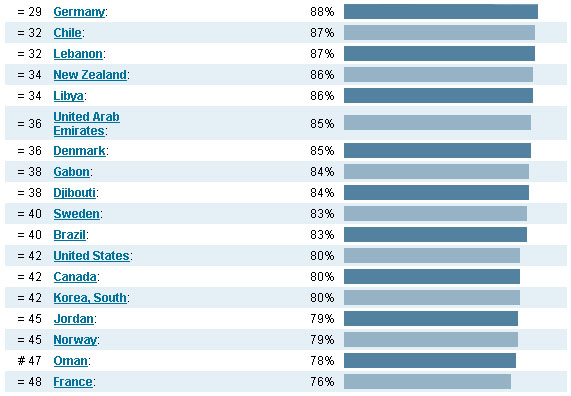Matt Yglesias on American urban policy:
Anyone actually interested in the subject will swiftly see that (a) American public policy is strongly biased against high density living and (b) that this outcome is predictable from the structure of American political institutions. That people don’t realize this is largely a matter of willful ignorance.
Here’s a chart showing where the United States ranks in the world in terms of urban population:

We’re 42nd out of 199, which makes us fairly urban, and the other advanced economies clustered around us include Germany, New Zealand, Denmark, Sweden, Canada, South Korea, Norway, and France. On this measure, we seem fairly typical. However, the density of our urban areas is quite low compared to other similar countries.
So is our rural/suburban bias due to our political institutions — in particular, the U.S. Senate, which overrepresents the residents of sparsely populated states? Or is it mostly due to geography and the relatively recent founding of our country, which have produced fairly low-density urban areas and therefore a naturally weaker constituency for high-density living? Is there some evidence on this point?


















